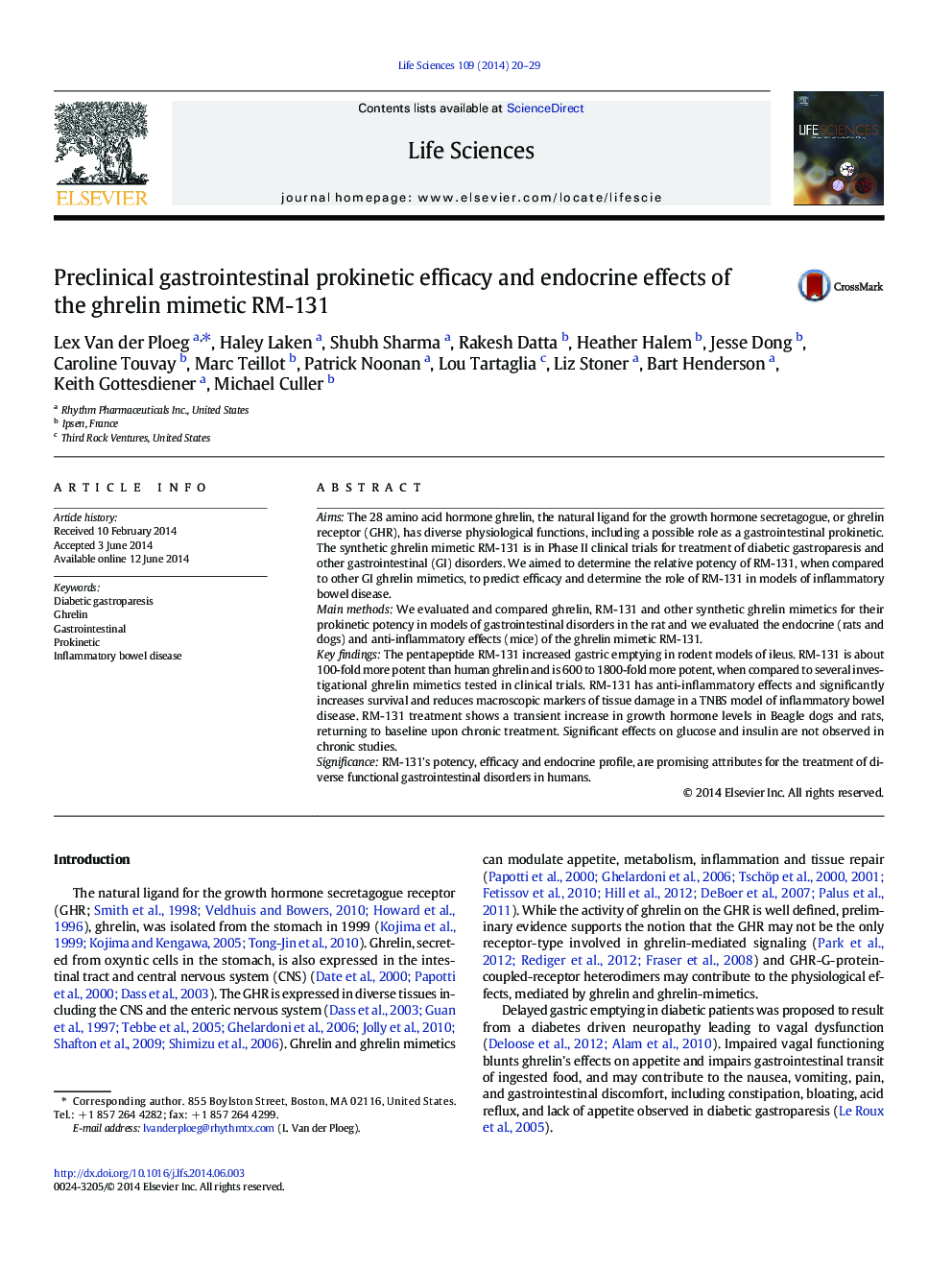| Article ID | Journal | Published Year | Pages | File Type |
|---|---|---|---|---|
| 2551186 | Life Sciences | 2014 | 10 Pages |
AimsThe 28 amino acid hormone ghrelin, the natural ligand for the growth hormone secretagogue, or ghrelin receptor (GHR), has diverse physiological functions, including a possible role as a gastrointestinal prokinetic. The synthetic ghrelin mimetic RM-131 is in Phase II clinical trials for treatment of diabetic gastroparesis and other gastrointestinal (GI) disorders. We aimed to determine the relative potency of RM-131, when compared to other GI ghrelin mimetics, to predict efficacy and determine the role of RM-131 in models of inflammatory bowel disease.Main methodsWe evaluated and compared ghrelin, RM-131 and other synthetic ghrelin mimetics for their prokinetic potency in models of gastrointestinal disorders in the rat and we evaluated the endocrine (rats and dogs) and anti-inflammatory effects (mice) of the ghrelin mimetic RM-131.Key findingsThe pentapeptide RM-131 increased gastric emptying in rodent models of ileus. RM-131 is about 100-fold more potent than human ghrelin and is 600 to 1800-fold more potent, when compared to several investigational ghrelin mimetics tested in clinical trials. RM-131 has anti-inflammatory effects and significantly increases survival and reduces macroscopic markers of tissue damage in a TNBS model of inflammatory bowel disease. RM-131 treatment shows a transient increase in growth hormone levels in Beagle dogs and rats, returning to baseline upon chronic treatment. Significant effects on glucose and insulin are not observed in chronic studies.SignificanceRM-131's potency, efficacy and endocrine profile, are promising attributes for the treatment of diverse functional gastrointestinal disorders in humans.
